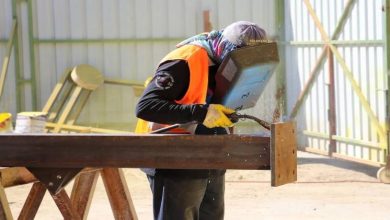In auction rooms, there’s still a lot of interest in residential real estate

Everyone enjoys a good bargain – and at auctions, sometimes one can strike just that! Property auctions have become increasingly popular due to many reasons, some of which are mentioned below. As an unforeseen result of the pandemic, the property market soared. As some of the Sittingbourne letting agents will confirm, the trend to partner with auction firms has been growing, showing results in more business, ease of workload and good customer service.
Another side effect of the pandemic was the lockdowns, curtailing physical viewings of properties and resulting in not only virtual viewings but online sales as well. This added to the popularity of buying and selling property in auction rooms.
Here are some other advantages of why there is still interest in residential real estate auction sales:
Time-saving: In the current times where everything is “fast-paced”, there is no quicker way than buying or selling a property at an auction. Residential, commercial, mixed-purpose and land come under this flag. For anyone in need of urgently buying or selling a property, an auction room could meet the time frame. While traditional selling usually takes months to complete, it usually takes just 28 days after the auction for the legal proceedings to be completed.visit here for more info about WPC2026
Online auctions: Traditional property auctions take place in public venues, which require interested buyers to attend and which can be rather daunting for newcomers. With the migration to online auctions, more people have been drawn to attend from the comfort of their homes, thus increasing the number of participants. According to a representative from one of the leading auction houses, “Now anybody can just log on and watch the auction. That can draw them into considering auction as a means of purchasing a property.”
Transparency: At an auction, everything is open and all bids are viewed. So the chances of being gazumped are reduced. Also, potential buyers are usually provided with a Buyers Information Pack or legal pack, giving detailed information and documentation on the property, so that a potential buyer is aware of these essentials. It is always wise to go through this vital information and have it checked by an “auction-experienced” solicitor or conveyancer.
Choice: There is usually a broader range of properties to choose from, including some optimum buys. Also, there is the opportunity to bid for a better price and achieve a good bargain.
Less Risk: Since the outcome will be decided on the day of the auction, there is less risk of the deal going awry. Also, there is no pressure to be the first with your offer, and no lengthy delays with processing counter offers or lack of communication.
Reliable: Usually, the contracts are signed as soon as the auction is completed. There are two ways that the completion can take place:
- Traditionally, the contracts are exchanged and a 10% deposit is paid immediately after the auction concludes. Then 28 days are allowed to complete the purchase.
- With the more modern method, a percentage of the bid is paid as a fee to reserve the property. This is non-refundable. Then, 56 days are allowed to exchange contracts and complete the proceedings.
Either way, reliability is ensured.
Before a potential buyer attends a property auction, there is a lot of research that needs to be conducted and information to be aware of, to ensure that he/she bids for the best deal. These include:
Pricing: In an auction, there are three different pricing levels.
- The Reserve Price (usually confidential) is the lowest amount that can be bid. If not met, the property will remain unsold.
- The Guide Price is listed and is what the seller thinks it could be worth. This gives the bidders an idea of what the rate will be. It is usually set 10% below the Reserve Price.
However, guide and reserve prices can change right up to and on the day of the auction.
- The Final Sale Price: will depend on the outcome of the auction. Sometimes, it could sell at a higher price than the Guide and Reserve ones.
Funds: It is crucial to ensure that enough funding is available. Not just for the property price but also for auction fees, legal costs, VAT and Stamp Duty Land Tax if applicable and the deposit required. If required, a mortgage acceptance should be obtained. The bidding should be kept within financial limits.
Research: Once the property is decided upon, auction houses should be contacted for viewing with details of upcoming auctions. The property should be inspected thoroughly, with doubts clarified and to ensure that there are no local council restrictions.
Documentation: All documentation should be studied carefully. Sometimes, the legal pack will not include a surveyor’s report. It is wise to have a survey conducted before a decision is made.
Conclusion: We can see why there is so much interest in property auctions and how “the
Modern Method of Auction is fast, transparent and the future” https://www.estateagenttoday.co.uk/features/2021/10/. However, the above should be checked out before the hammer falls and the buyer is legally bound.




